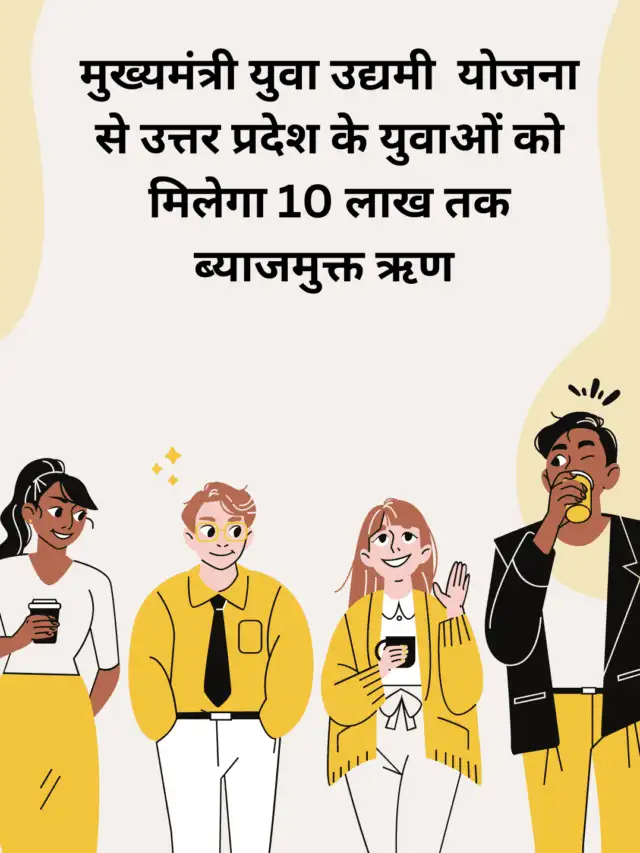Auto Amazon Links: Could not resolve the given unit type, . Please be sure to update the auto-insert definition if you have deleted the unit.
Auto Amazon Links: Could not resolve the given unit type, . Please be sure to update the auto-insert definition if you have deleted the unit.
Key provisions of “The Uttar Pradesh Prohibition of Unlawful Conversion of Religion Act, 2021”.
The Uttar Pradesh Prohibition of Unlawful Conversion of Religion Act, 2021, outlines specific provisions to regulate religious conversions in the state. Below are the key provisions of the Act, along with their relevant sections:
1. Prohibition of Unlawful Religious Conversion:
- Section 3: Prohibits conversion by misrepresentation, force, undue influence, coercion, allurement, or by any fraudulent means. It also prohibits conversion solely for the purpose of marriage.
2. Advance Notice for Conversion:
- Section 8(1): Requires a person intending to convert to another religion to submit a declaration to the District Magistrate (DM) at least 60 days prior to the conversion.
- Section 8(2): Requires the religious priest or person conducting the conversion to give one month’s notice to the DM.
3. Inquiry and Verification:
- Section 8(3): Empowers the District Magistrate to conduct an inquiry to ascertain whether the proposed conversion is voluntary and not done through unlawful means.
4. Punishments for Violations:
- Section 5: Outlines the penalties for unlawful conversion:
- General Violations: Imprisonment of 1 to 5 years and a fine of ₹15,000.
- Special Cases (e.g., minors, women, SC/ST): Imprisonment of 3 to 10 years and a fine of ₹25,000.
- Mass Conversions (two or more persons): Imprisonment of 3 to 10 years and a fine of ₹50,000.
5. Marriage-related Conversions:
- Section 6: Declares that any marriage performed for the sole purpose of unlawful conversion, or any marriage where conversion was done solely for marriage, is void.
6. Reverse Burden of Proof:
- Section 12: Places the burden of proof on the accused person to show that the conversion was lawful and not performed through prohibited means.
7. Cognizable and Non-Bailable Offenses:
- Section 9: Specifies that all offenses under this Act are cognizable (allowing for arrest without a warrant) and non-bailable, meaning that bail is not automatically granted.
8. Compensation to Victims:
- Section 4: Allows the court to direct the offender to pay compensation of up to ₹5 lakh to the victim of forced or fraudulent conversion.
9. Right to Reconvert:
- Section 3 (Explanations): Clarifies that returning to one’s original religion (reconversion) is not considered conversion under this Act.
Uttar Pradesh Prohibition of Unlawful Conversion of Religion (Amendment) Bill, 2024
On July 30 2024 the Uttar Pradesh Legislative Assembly passed the Uttar Pradesh Prohibition of Unlawful Conversion of Religion (Amendment) Bill, 2024, which intensifies the original 2021 anti-conversion law, making it harsher and potentially more prone to misuse.
According to the Bill’s explanatory statement, the need for stricter measures arose due to alleged “organized and well-planned” efforts by “foreign and anti-national elements and organizations” involved in demographic changes through unlawful conversions. State government data shows that from January 1, 2021, to April 30, 2023, 427 cases were registered under the Act.
Are the penalties more severe?
Previously, a conviction for unlawful conversion carried a prison sentence ranging from one to five years and a fine of ₹15,000. The amendment increases the minimum sentence to five years and the maximum to 10 years, with a fine now raised to ₹50,000. For cases involving minors, women, or individuals from Scheduled Castes or Tribes, the penalty is increased from 2-10 years of imprisonment to 5-14 years, with the minimum fine now at ₹1 lakh.
The amendment also introduces two new categories of offenses. First, the addition to Section 5 imposes a prison term of 7 to 14 years and a fine of ₹10 lakh on those who obtain “foreign” funds or funds from “illegal institutions” for unlawful conversion purposes. Second, if the accused causes someone to “fear for their life or property, assaults or uses force, promises or instigates marriage, conspires, or induces a minor, woman, or person to traffic or otherwise sells them,” they face a minimum of 20 years in prison, extendable to life imprisonment.
Who is allowed to register a complaint?
Under Section 4 of the original Act, the right to file a criminal complaint for unlawful conversion was restricted to “any aggrieved person” or their “parents, brother, sister, or any other person related by blood, marriage, or adoption.” The amendment now officially permits third-party complaints, allowing “any person” to file an FIR concerning any violation of the Act.
What are the provisions for bail?
The amendment introduces strict “twin conditions of bail,” similar to those in laws like the Prevention of Money Laundering Act, 2002, and the Unlawful Activities (Prevention) Act, 1967. All offenses related to unlawful conversion are now categorized as cognizable and non-bailable, with cases only to be heard by a sessions court or higher judicial authority.
Under the amended Section 7, bail cannot be granted to the accused without first giving the public prosecutor a chance to oppose the bail application. If the public prosecutor objects, the sessions court may grant bail only if there are “reasonable grounds to believe that the accused is not guilty of the offense” and that they are unlikely to commit any further crime if released. The reverse burden of proof on the accused makes it exceedingly difficult to secure bail before the trial is concluded.
conclusion:
A batch of petitions challenging the parent legislation and other anti-conversion laws are pending adjudication before a Bench.Anti-conversion laws, which are enacted in several Indian states, are intended to prevent forced or fraudulent religious conversions. However, critics argue that these laws are often misused to target religious minorities and infringe on individual rights. The outcome of such petitions can significantly impact the interpretation and enforcement of these laws.
Auto Amazon Links: Could not resolve the given unit type, . Please be sure to update the auto-insert definition if you have deleted the unit.
Auto Amazon Links: Could not resolve the given unit type, . Please be sure to update the auto-insert definition if you have deleted the unit.




